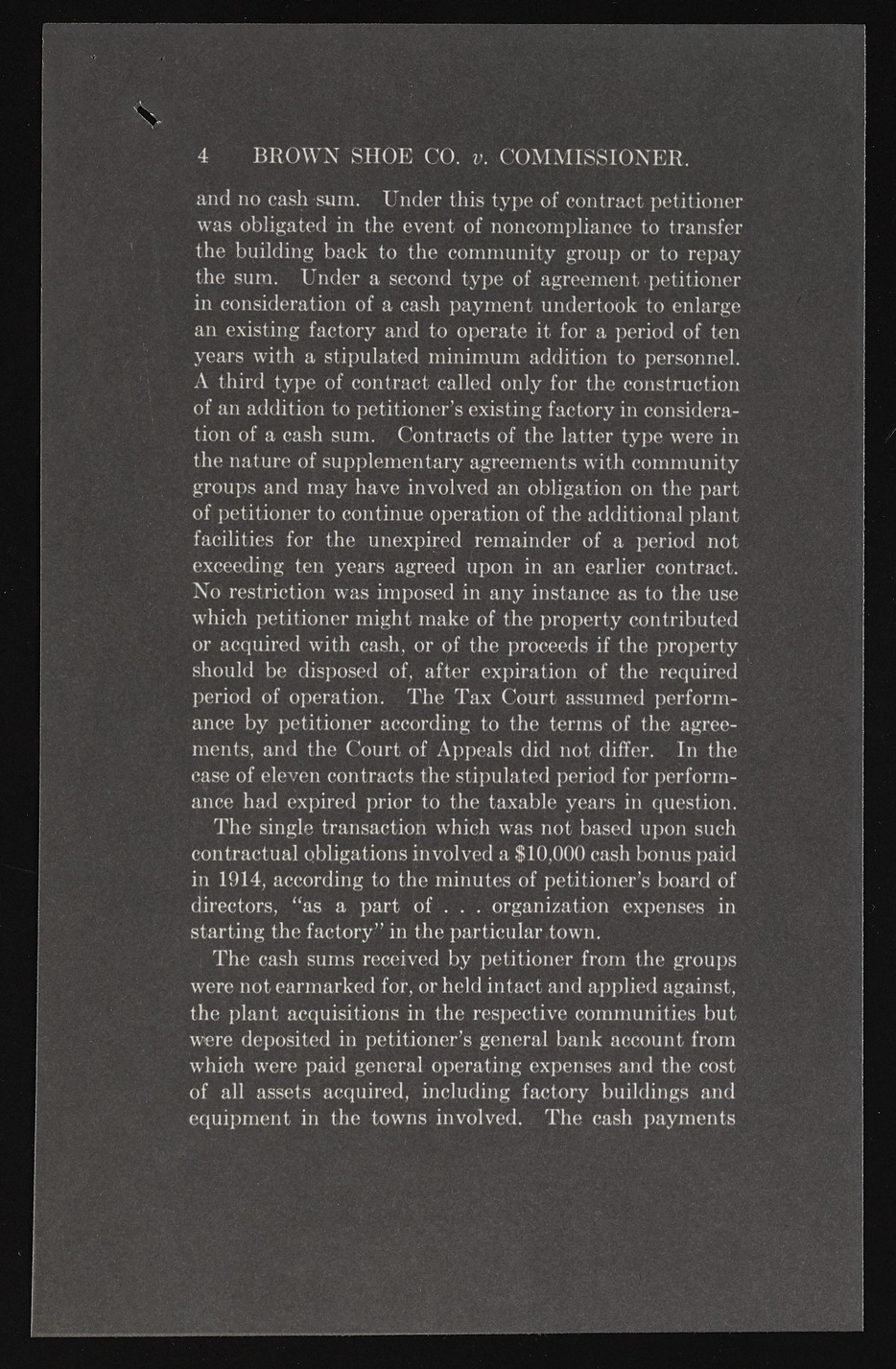Copyright & Fair-use Agreement
UNLV Special Collections provides copies of materials to facilitate private study, scholarship, or research. Material not in the public domain may be used according to fair use of copyrighted materials as defined by copyright law. Please cite us.
Please note that UNLV may not own the copyright to these materials and cannot provide permission to publish or distribute materials when UNLV is not the copyright holder. The user is solely responsible for determining the copyright status of materials and obtaining permission to use material from the copyright holder and for determining whether any permissions relating to any other rights are necessary for the intended use, and for obtaining all required permissions beyond that allowed by fair use.
Read more about our reproduction and use policy.
I agree.Information
Digital ID
Permalink
Details
More Info
Rights
Digital Provenance
Publisher
Transcription
and no cash sum. Under this type of contract petitioner was obligated in the event of noncompliance to transfer the building back to the community group or to repay the sum. Under a second type of agreement petitioner in consideration of a cash payment undertook to enlarge an existing factory and to operate it for a period of ten years with a stipulated minimum addition to personnel. A third type of contract called only for the construction of an addition to petitioner’s existing factory in consideration of a cash sum. Contracts of the latter type were in the nature of supplementary agreements with community groups and may have involved an obligation on the part of petitioner to continue operation of the additional plant facilities for the unexpired remainder of a period not exceeding ten years agreed upon in an earlier contract. No restriction was imposed in any instance as to the use which petitioner might make of the property contributed or acquired with cash, or of the proceeds if the property should be disposed of, after expiration of the required period of operation. The Tax Court assumed performance by petitioner according to the terms of the agreements, and the Court of Appeals did not differ. In the case of eleven contracts the stipulated period for performance had expired prior to the taxable years in question. The single transaction which was not based upon such contractual obligations involved a $10,000 cash bonus paid in 1914, according to the minutes of petitioner’s board of directors, “as a part of . . . organization expenses in starting the factory” in the particular town. The cash sums received by petitioner from the groups were not earmarked for, or held intact and applied against, the plant acquisitions in the respective communities but were deposited in petitioner’s general bank account from which were paid general operating expenses and the cost of all assets acquired, including factory buildings and equipment in the towns involved. The cash payments 4 BROWN SHOE CO. v. COMMISSIONER.

